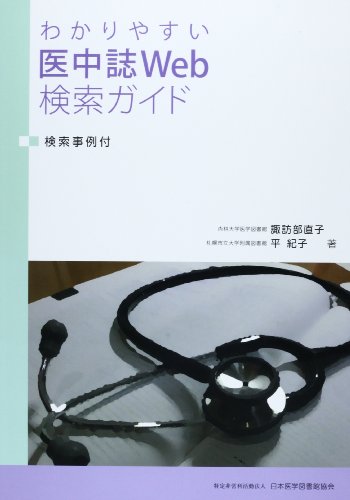1 0 0 0 OA 臨床医学論文執筆に必要な情報リテラシー
- 著者
- 諏訪部 直子
- 出版者
- 特定非営利活動法人 日本医学図書館協会
- 雑誌
- 医学図書館 (ISSN:04452429)
- 巻号頁・発行日
- vol.52, no.1, pp.53-58, 2005-03-20 (Released:2011-09-21)
- 参考文献数
- 28
Information literacy is defined as the individual's ability to collect information from appropriate sources, evaluate the quality of information obtained, and organize and use the information effectively for specific purposes. Today's researchers should be information-literacy not only in their areas of expertise but also in changing circumstances surrounding their research environment. This article provides information that researchers must know to conduct out clinical research and write papers.Recent changes in prevalent contribution rules for academic articles called “Uniform Requirements for Manuscripts Submitted to Biomedical Journals, ” implementation of the personal information protection law in Japan, Evidence-based Medicine (EBM), and guidelines for writing structured abstracts and clinical research papers would directly affect the research process. Researchers must be aware of the changes and comply with the new rules or their papers will not be accepted by major medical journals. They must be more information-literate in a broader sense than ever.
1 0 0 0 わかりやすい医中誌Web検索ガイド : 検索事例付
- 著者
- 諏訪部直子 平紀子著
- 出版者
- 紀伊國屋書店 (発売)
- 巻号頁・発行日
- 2013
1 0 0 0 OA 米国と日本における医学図書館員の認定資格制度
- 著者
- 諏訪部 直子 酒井 由紀子
- 出版者
- 特定非営利活動法人 日本医学図書館協会
- 雑誌
- 医学図書館 (ISSN:04452429)
- 巻号頁・発行日
- vol.55, no.2, pp.112-120, 2008-06-20 (Released:2011-09-21)
- 参考文献数
- 13
The qualification system for the library profession in Japan, regulated in the library law, mainly stipulates the requirements for becoming public librarians and does not endorse expertise in any other types of libraries. Under such circumstances, the Japan Medical Association, the JMLA, has provided training courses, research grants, scholarships, and awards to develop professional health sciences librarians. The JMLA launched its health sciences librarians credentialing program called the JMLA Health Sciences Information Professionals, JHIP, in 2004. The JHIP program was designed by modeling on its counterpart in the United States, the Academy of Health Science Information Professionals, AHIP, which was started in 1989 by the Medical Library Association, MLA. In this paper, authors described distinctive aspects of the JHIP by comparing it with the AHIP and reviewing three surveys on the AHIP conducted by the MLA and some researchers to debate some issues that a professional credentialing program may have, with the hope of seeking the appropriate direction JHIP program should take. The findings from the comparison and the review of the surveys are: the strength of AHIP is based on distinctive professional competence; related marketing/promotion activities; and continuous effort on evaluation and adjustment of the program as a part of MLA's integrated professional development program.
